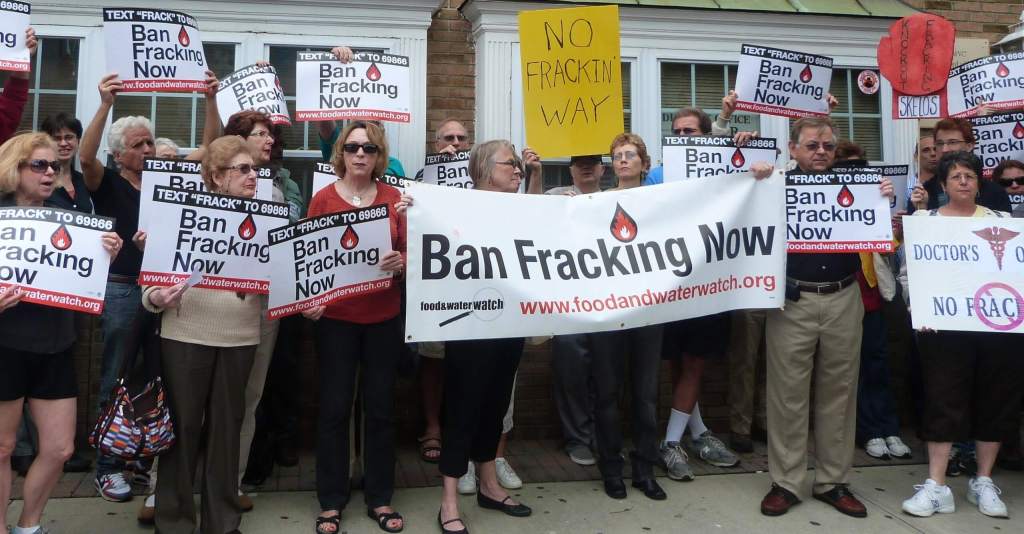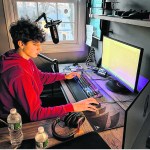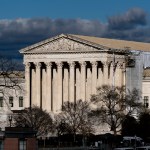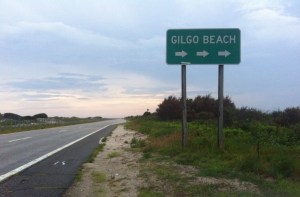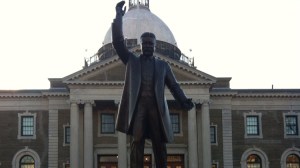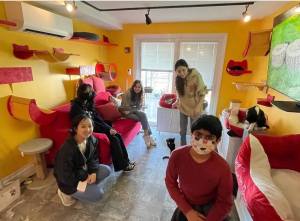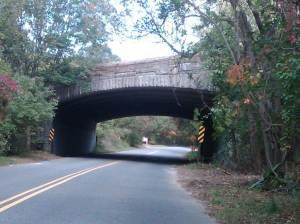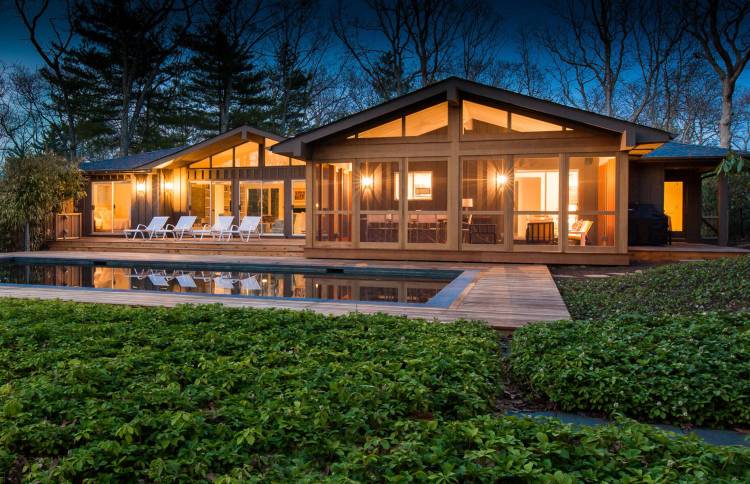
Chants of “Ban Fracking Now,” and “Once you frack, you can’t go back,” filled the air in front of the Rockville Centre office of New York State Senate Majority Leader Dean Skelos, a Republican, at noon Thursday as more than 50 people rallied against fracking.
It was one in a statewide series of rallies organized by New York Against Fracking, a coalition of more than 120 groups across the state opposed to hydraulic fracturing, a controversial natural gas drilling practice that could soon be legalized upstate.
“Fracking in any part of New York is going to affect all New Yorkers and Senator Dean Skelos, as the leader of the Senate, and Governor Andrew Cuomo, need to take leadership on this issue and ban fracking in New York,” said Sam Bernhardt, Long Island organizer for Food and Water Watch.
The rally came the day after the state Department of Environmental Conservation announced plans to allow fracking in some parts of New York.
Speakers at the rally included Jim Brown, president of South Shore Audubon Society, Patti Wood, executive director of Grassroots Environmental Education, Louis Sabatini of MoveOn.org, Karen Miller, of the Huntington Breast Cancer Action Coalition and several concerned residents.
The group called on Skelos to pass a bill that would ban fracking in New York State.
“It’s a bill that is in Senator Skelos’ chamber, it’s in the environmental conservation committee,” Bernhardt said. “We’ve got a bunch of co-sponsors on it and it has not come to a vote.”
The protesters listed the negative environmental impacts of fracking, such as the creation of earthquakes, increased air pollution, contaminated water supplies and negative impacts on wildlife sparked by the process that involves injecting millions of gallons of chemicals into the ground.
Fracking is also believed to negatively impact public health by contributing to illnesses such as cancer, lukemia, neurodevelopment disorders and diabetes.
“They have not funded a health impact study, they don’t even want to know how it’s going to effect our lives. That’s outrageous!” Sabatini of MoveOn said.
Others echoed this point, arguing the public should have a say in whether or not it is permitted.
“We urge Dean Skelos to let this come for a vote, because the people, I think, in New York State do not want fracking, they want it banned. Let the public decide, bring it to a vote,” Brown of the Audubon Society said.
A Cornell University poll conducted this month shows that most New Yorkers oppose the legalization of fracking and fear that the risks outweigh the potential rewards.
“We need to take a look at what Vermont did a couple of weeks ago, where they were the first state to ban fracking. New York has to be second, they should have been first,” said Victor Perez, of Valley Stream.
Many of the speakers focused heavily on the long-term effects of fracking and the impact that it would have on future generations.
“I’m here with my daughter and my grandson, our future, and the whole issue of fracking is about our future and about our children and our grandchildren,” said William Coddington, of Port Washington.



